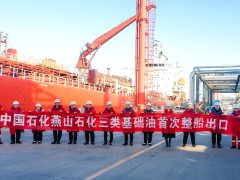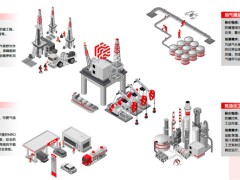据能源世界网5月25日报道,使太阳能成为世界上增长最快的能源的一个关键卖点——快速降低成本——遭遇了瓶颈。
太阳能组件的价格在过去十年下跌了90%之后,自今年年初以来上涨了18%。在关键原材料多晶硅成本翻了四倍的推动下,就在几个主要国家的政府终于开始支持太阳能以减缓气候变化之际,这一逆转可能会推迟项目,减缓对太阳能的利用。
清洁能源研究机构BloombergNEF首席太阳能分析师詹妮·蔡斯(Jenny Chase)表示,对太阳能的中断是十多年来最严重的一次。开发商和政府将不得不停止预期太阳能将迅速变得更便宜。BNEF上周在一份报告中略微下调了对今年太阳能建设的预测,称多晶硅等材料的价格上涨是原因之一。
太阳能电池板制造商加拿大太阳能公司(Canadian Solar Inc.)上周四在业绩电话会议上表示,价格上涨正在影响需求,可能会推迟一些大型项目。Mint援引未具名开发商的话称,在印度,大约1000亿瓦的项目可能会受到影响,相当于该国目前发电能力的四分之一以上。Cowen & Co.的分析师表示,美国的大型项目也可能被推迟。
伍德麦肯兹(Wood Mackenzie)分析师孙晓静(Xiaojing Sun)表示,如果用户不愿意支付更高的电费,那些尚未与购买电力的公用事业公司签订价格协议的项目可能会被推迟。
对太阳能行业来说,时机不能更糟糕了。可再生能源终于在白宫得到了支持,欧洲和亚洲也宣布了雄心勃勃的气候目标。
这场危机的核心是多晶硅,一种超精炼的硅,是地球上最丰富的物质之一,通常存在于沙滩上。随着太阳能行业为满足预期中的模块需求激增而做准备,多晶硅制造商无法跟上。根据PVInsights的数据显示,这种纯类金属的价格已从一年前的6.19美元触及每公斤25.88美元。
郝芬 译自 能源世界网
原文如下:
Solar power's decade of falling costs is thrown into reverse
A key selling point that made solar energy the fastest-growing power source in the world—rapidly decreasing costs—has hit a speed bump.
Solar module prices have risen 18% since the start of the year after falling by 90% over the previous decade. The reversal, fueled by a quadrupling in the cost of the key raw material polysilicon, threatens to delay projects and slow uptake of solar power just as several major governments are finally throwing their weight behind it in an effort to slow climate change.
“The disruption to solar hasn’t been this bad in more than a decade,” said Jenny Chase, lead solar analyst with clean energy research group BloombergNEF. “Developers and governments are going to have to stop expecting solar to get much cheaper quickly.” BNEF slightly lowered its forecast for solar buildout this year in a report last week, citing rising prices of materials including polysilicon as one reason.
Higher prices are affecting demand and may delay some large-scale projects, panel-maker Canadian Solar Inc. said on an earnings call on Thursday. In India, about 10 gigawatts of projects may be impacted, equivalent to more than a quarter of the country’s current capacity, Mint reported, citing unnamed developers. Large-scale projects in the U.S. could also get postponed, analysts at Cowen & Co. said.
Projects that haven’t signed price agreements with utilities that buy the power might get delayed unless the customer is willing to pay a higher rate for the electricity, according to Xiaojing Sun, an analyst at Wood Mackenzie Ltd.
For the solar industry, the timing couldn’t be worse. Renewable energy finally has a champion in the White House and ambitious climate goals have been announced across Europe and Asia.
At the center of the crisis is polysilicon, an ultra-refined form of silicon, one of the most abundant materials on Earth that’s commonly found in beach sand. As the solar industry geared up to meet an expected surge in demand for modules, makers of polysilicon were unable to keep up. Prices for the purified metalloid have touched $25.88 a kilogram, from $6.19 less than a year ago, according to PVInsights.
免责声明:本网转载自其它媒体的文章,目的在于弘扬石化精神,传递更多石化信息,并不代表本网赞同其观点和对其真实性负责,在此我们谨向原作者和原媒体致以敬意。如果您认为本站文章侵犯了您的版权,请与我们联系,我们将第一时间删除。







